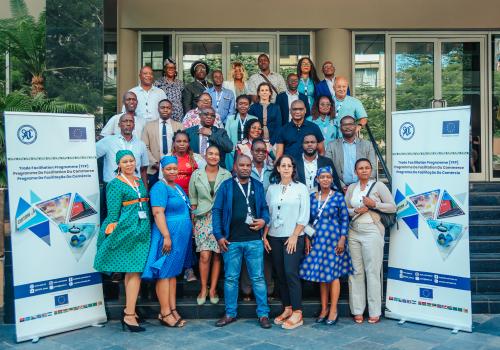SADC-EU Empowers Small-Scale Farmers and MSMEs
The Southern African Development Community (SADC) Secretariat, in collaboration with the European Union (EU) funded Trade Facilitation Programme (TFP), has successfully empowered small-scale farmers and Micro, Small, and Medium Enterprises (MSMEs) with the necessary knowledge and skills to comply with Sanitary and Phytosanitary (SPS) measures for food safety.
This initiative, aimed at facilitating trade within the region and beyond, has played a crucial role in addressing the challenges faced by these stakeholders in meeting SPS requirements.
As part of the SADC-EU TFP efforts, a comprehensive capacity-building workshop was conducted in Johannesburg, South Africa, from January 24th to 26th, 2024, and in Maputo, Mozambique, from January 29th to 31st, 2024.
The primary focus of these workshops was to bridge the gaps in both theoretical understanding and practical experience related to the production of food products.
The ultimate goal was to ensure compliance with SPS requirements, specifically food safety standards and other technical regulations.
The adverse impact of food safety regulatory measures on small-scale farmers and MSMEs is well-acknowledged, particularly as many lack the necessary expertise to comprehend the role of standards, technical regulations, and conformity assessments in their businesses.
This challenge becomes more pronounced when these enterprises seek to enter new or foreign markets, where demonstrating adherence to safe food requirements is paramount.
The agriculture and food production value chains in the SADC region play a vital role in the economy and the sustenance of both human and animal life.
Consequently, stringent regulatory instruments, including Technical Barriers to Trade (TBT) and SPS measures, govern the movement of food, food products, and pre-packaged foodstuff across borders to ensure their safety for consumption.
Significant strides have been made in the SADC region to identify and reduce unnecessary trade barriers associated with food safety regulatory measures.
This progress is marked by the adoption of common standards and the recognition of equivalence in measures and assurances across all SADC Member States.
Small-scale farmers, MSMEs, and public sector representatives from various countries including Angola, Botswana, Democratic Republic of the Congo, Eswatini, Lesotho, Madagascar, Malawi, Mozambique, Namibia, Seychelles, South Africa, United Republic of Tanzania, Zambia, and Zimbabwe, were actively engaged in the workshops.
They were made aware of the current standards and measures required for the safe production and handling of food, aligning with international best practices.
Souce: SADC Secrettariat



